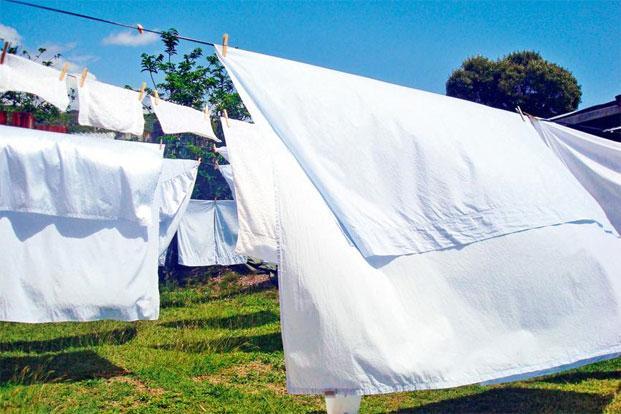From keeping your surroundings clean, to turning off the air conditioners—some ways to rid your home of pesky allergens.
If you’re suffering from an allergy, the cause could well be hidden within the four walls of your home or office.
Homes that are closer to traffic-heavy areas or near an industrial belt in a humid environment, don’t have good ventilation, or use extensive air conditioning, can be allergen-prone, says Salil Bendre, head of department, pulmonary medicine at Mumbai’s Nanavati Super Speciality Hospital. “We tend to think of air pollution as something outside when, in truth, the air inside homes, offices, and other buildings can be more polluted than the air outside,” says Tarun Sahni, senior consultant, internal medicine, Indraprastha Apollo Hospital, New Delhi.
It’s the everyday things that cause allergies—lead, a component of everyday dust, mites that feed on discarded human skin, volatile chemicals from fragrances, even a wet bathroom. House dust, says Dr Bendre, is an airborne mixture that has fine particles of soil, plant material, particles of human and animal skin and hair, fabric fibres, mould spores, dust mites, the fragments and waste of dead insects, food particles and debris, all potential allergens. Even plants and flowers can cause rashes. All these can lead to common allergy symptoms, like coughing, sneezing, red and itchy eyes, and a runny nose.
“If you’ve been sneezing continuously, the best way to find out if it’s your home causing the allergy is to see if you get your symptoms at night. Every time you come across the suspected substance, you will get allergic symptoms,” says New Delhi-based A.B. Singh, associate editor of the Indian Journal Of Allergy, Asthma And Immunology. “If you’re sure something at home is triggering it, the next step in diagnosis is to take the tests available at allergy centres which use in-vivo or in-vitro methods,” he adds.
Allergy skin tests can confirm the triggers for specific allergic symptoms. “These tests can confirm sensitivities to dust mites, animal dander, mould, or volatile organic compounds such as fragrances, which are frequently found in homes,” says Stanley Fineman, who is on the board of directors of the US-based World Allergy Organization.
Once you know what’s causing the problem, you need to ensure that you limit your exposure to allergens. In most cases, this is enough. “In extreme cases, timely immune-modulator treatment (to regulate the immune system) will help, but don’t go to doctors or alternative medicine practitioners who claim to cure it as there are no complete cures to allergic reactions,” warns Singh.
If you want to try and clear your home of possible allergens, this is what experts suggest.
Clean the linen
For almost 70% of asthmatics, dust mites are the cause of indoor allergies, says Dr Bendre. Dust mites are little, microscopic arthropods, about 0.4mm in length, that thrive on flakes of human skin, and live and lay eggs in our beds, pillows, cushion covers and fabric sofas.
“Air conditioning in northern India and humidity in the coastal cities contributes to their growth,” says Singh. The allergens lead to frequent sneezing, cough, throat irritation, watery eyes, headaches and, in some cases, even difficulty in breathing.
To discourage these pests, air the house, especially the bedroom, frequently. “Encase pillows and mattresses and box springs with dust-mite-proof covers, wash sheets, pillowcases and blankets at least once a week in water heated to at least 54 degrees Celsius,” says Dr Bendre. He suggests replacing wool or feathered bedding with washable materials made of cotton or synthetic fabrics to discourage dust mites.
Mop the floor
House dust can lead to sneezing, difficulty in breathing, cough, throat irritation and headache. Mopping the house with a damp cloth or using the vacuum cleaner regularly discourages this. “Dust can be clogged under the carpets, or on the curtains, pillows or in the mattresses. Anyone who is allergic to dust must see to it that everything is cleaned from time to time,” says Shikha Sharma, founder of health management centre Nutri-Health Systems Pvt. Ltd, New Delhi.
Read the complete article on livemint.com

